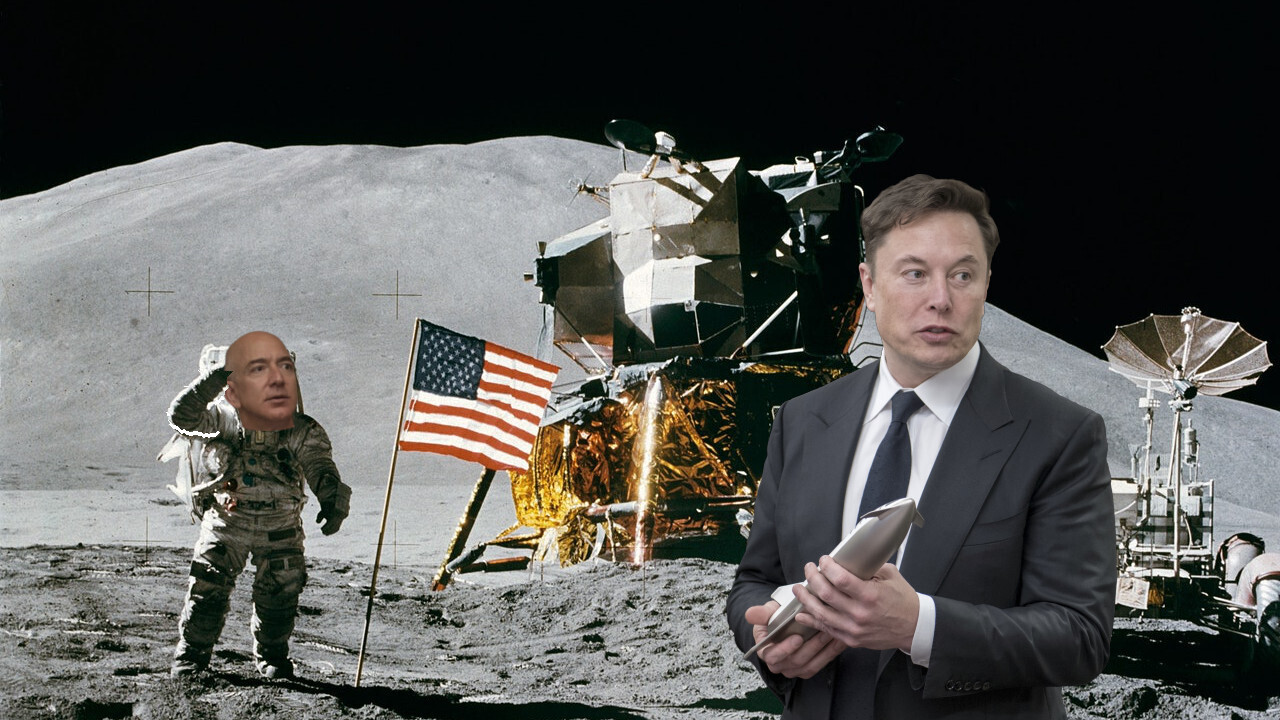
NASA has formally recruited tech billionaires Elon Musk and Jeff Bezos to return humans to the Moon by 2024.
The independent space agency revealed on Thursday it had awarded $967 million in deals to three US companies in relation to its Artemis project: Musk’s SpaceX, Bezos’ Blue Origin, and IT firm Dynetics.
The three firms will submit competing designs for a human landing system to be used in NASA’s Artemis project, and will only be paid once meeting specific development milestones.
“We are on our way,” said NASA associate administrator Douglas Loverro. “With these awards we begin an exciting partnership with the best of industry to accomplish the nation’s goals. We have much work ahead, especially over these next critical 10 months. I have high confidence that working with these teammates, we will succeed.”
Artemis is NASA’s attempt at establishing a sustainable human presence in space. In addition to sending men (and women!) to the Moon for science, NASA hopes the tech developed for Artemis will let humans (and robots!) travel deeper into space than ever before.
Sorry Bezos, but SpaceX is building an actual spaceship
Blue Origin, led by Amazon founder and world’s richest man Jeff Bezos, will develop a three-stage lander vehicle for the mission. The firm will focus on the its descent element, to be powered Blue Origin’s own cryogenic engines.
Larger aerospace firms Draper, Lockheed Martin, and Northrup Grumman will look after the the vehicle’s avionics, cargo, and refuelling systems.
Musk’s rocket company SpaceX has a far cooler objective: The Starship, an entirely reusable spaceship for transferring crew between lunar orbit and the motherfucking Moon.
The Starship’s design includes “a spacious cabin,” said NASA, and two airlocks for astronaut moonwalks.
SpaceX has been selected to develop a lunar optimized Starship to transport crew between lunar orbit and the surface of the Moon as part of @NASA’s Artemis program! https://t.co/FRmwWisKfH pic.twitter.com/z1bkUrQMK8
— SpaceX (@SpaceX) April 30, 2020
Over the next 10 months, the companies will refine their concepts, after which NASA will select contractors to take part in initial demonstration missions.
Don’t tell Musk: Funding not secured for NASA’s Artemis project, either
All this is to say that Artemis ever gets off the ground. While Trump’s White House originally ordered NASA to send humans to the Moon by 2024 as a “tester” for future Mars missions, Congress is yet to approve the related funding in full.
In June last year, NASA administrator Jim Bridenstine told CNN that NASA needs an estimated $20 to $30 billion on top of 2019’s budget of $21.5 billion over the next five years if Artemis is to succeed.
For now, Bridenstine reportedly appears confident that Congress will eventually give NASA the required funds, telling Thursday’s press conference: “It’s important that this agency do [Artemis] now, because our country and in fact the whole world has been shaken by this coronavirus pandemic. And yet we need to give people hope.”
“We need to give them something that they can look up to, [to] dream about.”
Get the TNW newsletter
Get the most important tech news in your inbox each week.





